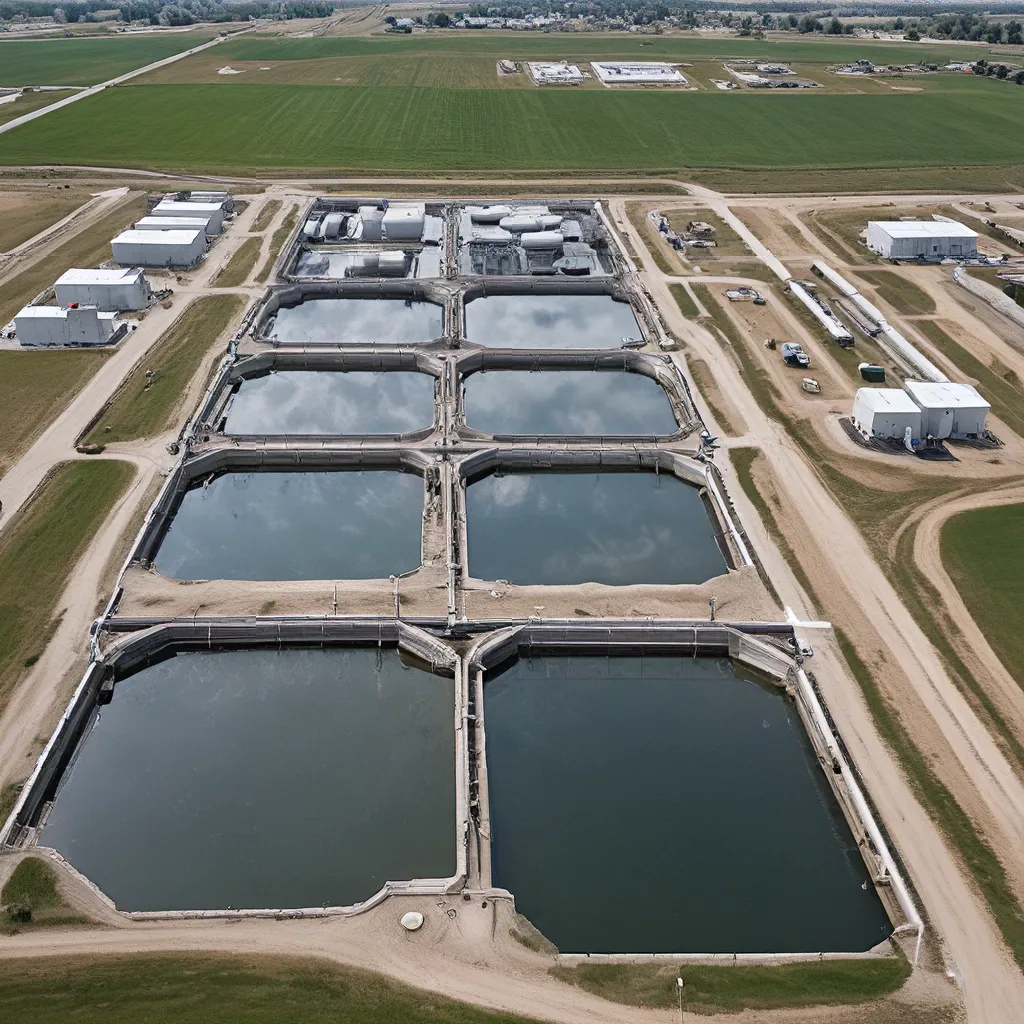
As an environmental engineer, I’ve always been fascinated by the intricate world of wastewater treatment and its untapped potential. In recent years, the emergence of the hydrogen economy has opened up exciting new avenues for innovation in this field. Let me take you on a journey to explore how these two seemingly disparate domains are converging to create a more sustainable future.
Wastewater Treatment: The Unsung Hero
When we think about wastewater treatment, it’s easy to overlook its significance. After all, the pipes and tanks that process our used water are often hidden from sight, out of mind. But the reality is, these facilities play a crucial role in protecting our environment and public health.
Dr. Bruce Dvorak, a renowned environmental engineer at the University of Nebraska-Lincoln, has dedicated his career to optimizing wastewater treatment processes. Through his research, he’s uncovered innovative ways to reduce the environmental impact of these facilities while enhancing their efficiency.
One of the key challenges Dvorak and his team have tackled is the issue of infiltration and inflow in small collection systems. This phenomenon, where groundwater and stormwater seep into the sewer network, can significantly increase the volume of wastewater that needs to be treated. By developing strategies to mitigate this problem, they’ve helped communities save on energy and operational costs, all while improving the overall performance of their wastewater infrastructure.
But Dvorak’s work extends far beyond just improving the mechanics of wastewater treatment. He’s also explored the life cycle assessment of these facilities, comparing the environmental impacts of different treatment technologies. His findings have provided valuable insights to help communities make informed decisions about their wastewater management systems.
The Hydrogen Economy Connection
Now, let’s dive into the intriguing intersection between wastewater treatment and the hydrogen economy. As the world shifts its focus toward cleaner energy sources, the potential of hydrogen as a fuel has gained significant traction.
Dr. Seunghee Kim, another prominent researcher at the University of Nebraska-Lincoln, is exploring the integration of wastewater treatment and hydrogen production. His work suggests that wastewater facilities could potentially serve as hubs for hydrogen generation, creating a mutually beneficial relationship.
One of the key by-products of wastewater treatment is the production of biogas, which is primarily composed of methane and carbon dioxide. This biogas can be captured and utilized as a feedstock for hydrogen production, unlocking a new revenue stream for wastewater treatment plants.
Moreover, the thermal regeneration of activated carbon, a critical component in the adsorption of contaminants, can also generate hydrogen as a valuable co-product. Dvorak’s research has delved into this process, demonstrating the potential for wastewater treatment facilities to become integrated energy hubs that produce both clean water and clean fuel.
Pioneering Innovations
The synergies between wastewater treatment and the hydrogen economy don’t stop there. Dvorak’s team has also explored the biofiltration of acetaldehyde, a byproduct of ethanol manufacturing that can pose environmental challenges. By developing innovative biofiltration systems, they’ve found ways to transform this waste stream into a potential source of hydrogen production.
Furthermore, Dvorak’s work on the biodegradation of formaldehyde and methanol in wastewater has implications for the hydrogen economy. These volatile organic compounds, often present in industrial effluents, can be effectively removed using biotrickling filters, potentially creating additional opportunities for hydrogen generation.
The breadth of Dvorak’s research is truly remarkable. From life cycle assessments of small water resource recovery facilities to exploring the compliance of hand sanitizers during the COVID-19 pandemic, his work has consistently demonstrated the ability to identify and address pressing environmental challenges.
The Future is Bright
As I reflect on the advancements in wastewater treatment and the hydrogen economy, I can’t help but feel a sense of excitement for the future. The work of researchers like Dvorak and Kim is paving the way for a more sustainable and integrated approach to resource management.
Imagine a world where wastewater treatment plants are not just facilities that clean our used water, but rather dynamic hubs that produce clean energy, recover valuable resources, and contribute to a circular economy. This vision is no longer just a dream – it’s a reality that is steadily taking shape.
Of course, there is still much work to be done. The transition to this hydrogen-powered future will require continued research, policy reforms, and investment. But the momentum is building, and I’m confident that the ingenuity and dedication of researchers like Dvorak and Kim will help us unlock the full potential of this promising intersection.
As you consider your own wastewater treatment needs, I encourage you to explore the opportunities presented by the hydrogen economy. Alpha Wastewater is a company that is at the forefront of this exciting frontier, leveraging cutting-edge technologies and partnerships to create innovative solutions. By embracing the power of wastewater and hydrogen, we can build a more sustainable and resilient future for our communities.
The journey ahead may be complex, with challenges and uncertainties to navigate. But with the right mindset and the tireless efforts of visionary researchers, I’m confident that we can unlock new possibilities and create a more harmonious relationship between our water systems and our energy needs.
So, let’s embark on this exploration together – a journey that promises to redefine the way we think about wastewater treatment and the role it can play in shaping a brighter, more sustainable tomorrow.